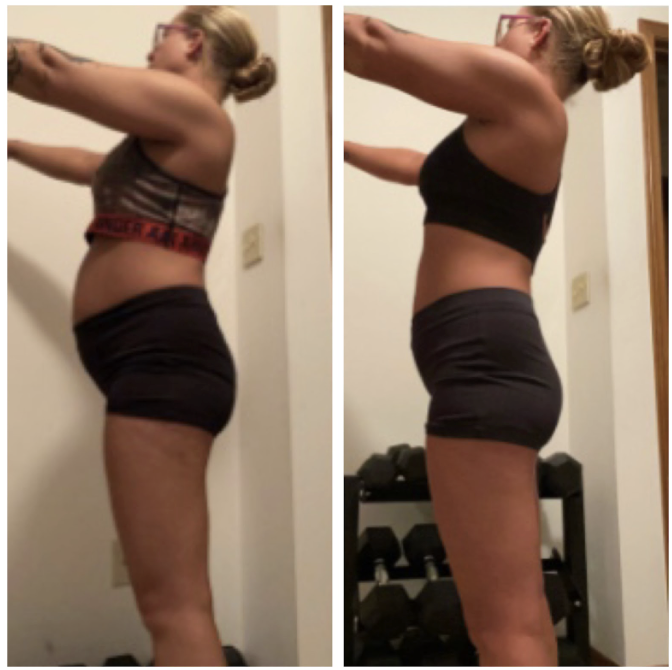
Alright, y'all, we need to dive into common food intolerances (I am also going to include medications) that play a significant role in bloating and overall digestive health. Mainly because this is highly misunderstood, and everyone attacks gluten. Especially in a world where over 66% of adult Americans are on prescription drugs and have a diet consisting of 70% processed foods... it's not the fucking gluten. At least, not for most people.
Look, everyone has food intolerances to some degree. That is normal. No one can eat three pints of ice cream or candy all day in one sitting and not experience gastrointestinal (GI) consequences. That does not mean dairy or sugar are innately bad. It simply means you ate too much of it.
Also, intolerance is not the same as allergy (gluten/lactose/nut/etc.) Food intolerances cause GI upset, and allergies cause a more severe immune response which can be deadly and are diagnosed conditions. Therefore, we will strictly be diving into food intolerances (also known as food sensitivities) here.
Common Food Intolerances That Contribute To Bloating
Processed Foods
Processed foods can be highly inflammatory. Meaning they cause irritation and water retention within our GI if consumed in high amounts. Some processed food intake (<20%) is acceptable for most people. Our GI is built to handle that. But most Americans consume over 70% processed foods in their diet DAILY. This leads to a highly inflamed digestive system, causing higher gas production to break down the food (bloating), which is disruptive to our gut microbiome. People often blame gluten for their bloating, and while this is true in some cases, more often than not, it is more from consuming processed foods, not the gluten itself.
Solution
80% or more of your diet should come from whole, nutrient-dense foods. Limit processed food intake to less than 20% of your diet. This alone can help you lose up to five pounds of water retention within a few days.
Cruciferous Vegetables
You may be thinking, "What? But vegetables are great!" And you would be correct. However, all vegetables digest differently. Cruciferous vegetables (like broccoli, cauliflower, and Brussels sprouts) take longer to digest (which is fine), but in high amounts (looking at you bodybuilders and your sulfur farts) can cause added gas and bloating. Eating broccoli weekly is great, but eating it daily may bring some unwanted bloating into the picture.
Solution
Continue to consume cruciferous veggies, but make sure to add leafy greens like spinach and high-water veggies like cucumbers. Maintain a wide variety of your veggie sources to ensure various nutrients and fiber.
Non-Cultured Dairy
Dairy gets a really bad rap, so I needed to add this here to make a clear distinction. Cultured dairy (such as Greek Yogurt, Keifer, and REAL cheese) is not the same as non-cultured dairy (Kraft "cheese" and milk.) Many people mistake that they have lactose intolerance when in reality, it has more to do with the QUALITY and type of dairy source. Cultured dairy (filtered dairy can also be lumped into this category) has amazing protein content and supports a healthy gut microbiome; it is vastly different from the shredded cheese you find at Walmart.
Solution
Before eliminating dairy because you heard it was "bad." Audit your dairy sources. Are your dairy sources coming from ice cream and processed cheese? Or Keifer and plain greek yogurt? There is a big difference.
Also, make sure to read the labels on your yogurt. Choose yogurt with low sugar content (less than 8 grams per serving.) If you choose yogurt with 20 grams of sugar per serving, you might as well eat a candy bar at that point. Sweeten your yogurt with fruit and natural, low-calorie sweeteners such as stevia.
Common Medications That Contribute To Bloating
Important: This list is to educate you on the side effects of certain medications. This is not to encourage you to stop taking any medications prescribed by your doctor. Please consult your doctor before ending any prescription medication.
Birth Control Pills
Chronic use of birth control pills (more than four years consecutively is considered chronic use) can negatively affect the gut microbiome and gut lining permeability (how nutrients get absorbed.) Research shows that women who have been chronically on the pill may develop vitamin B, vitamin C, magnesium, selenium, and zinc deficiencies. They're also at a higher risk for developing more severe gut issues such as SIBO (small intestine bacterial overgrowth,) yeast overgrowth, leaky gut, altered gut motility, etc., all of which lead to bloating/abdominal distension.
Solution
Discuss other birth control options with your doctor (birth control that doesn't need to be ingested daily/go through the gut, such as an IUD), or take extra steps at maintaining healthy digestion. For example, taking ox bile for gallbladder support, digestive enzymes, and in some cases, Betaine HCL/Pepsin to maintain healthy stomach acid production. Do not take these willy-nilly. Consult a professional.
RECENT: Achievements, Success, and Fulfillment
Proton Pump Inhibitors & Selective Serotonin Reuptake Inhibitors
PPIs
These are medications such as Nexium/Prilosec; they reduce the amount of stomach acid made by glands in your stomach lining. They are prescribed for heartburn, indigestion, and GERD. However, they are not designed to be a long-term solution and can cause great harm when taken for years on end. Long-term use increases the risk of fractures, pneumonia, Clostridium difficile diarrhea, hypomagnesemia, vitamin B12 deficiency, chronic kidney disease, and dementia. In addition, while they may serve as a temporary solution to your symptoms, they can cause permanent damage to your GI over time and slow down digestion as a whole, leading to….you guessed it! Bloating.
Solution
Work with a functional practitioner to determine the root cause of your heartburn, indigestion, or GERD. PPIs are not fixing the issue; they are simply masking it for the time being but will cause even worse long-term issues. Address the root cause. I've talked about this in a previous article here.
SSRIs
This one gets really tricky because some people genuinely need this type of medication. SSRIs can have a significant effect on gut bacteria. Various types of bacterial growth can be inhibited while taking SSRIs which can disrupt the integrity and stability of the gut.
Solution
You may need to be more intentional with supporting your gut bacteria while taking SSRIs, and that's okay! For example, eating fermented foods, cultured dairy, and in some cases, a high-quality probiotic (tip: Most probiotics are shit. If it doesn't require refrigeration, then it is shit. Buy a brand that needs to be kept cold.) can go a long way. Also, drinking bone broth may soothe any inflammation due to bacteria disruption.
Conclusion
I want to share a cast study in which bloating was taking place. With proper caloric intake (especially protein), increasing whole foods, and not blaming gluten, Kelley could see amazing results without giving up her favorite foods! And she could do her first unassisted pull-up, which was even more rad.

This did not occur from randomly eliminating foods or jumping into a low fodmap approach, keto, gluten-free, etc. Food elimination of any kind should be the last resort, not the first.
To sum this up, only around 6% of the population actually has a gluten allergy or intolerance. The other 94% are more than likely, dealing with the above. So this is just a reminder that we need to look at gut health comprehensively versus what is popular at the time in the media or the current trend.
It might not be sexy, but more often than not, simply cleaning up our diet and living a healthy lifestyle so that we don't need to add unnecessary medications into the mix wins the day.

Alycia Israel is a nationally qualified NPC figure and bikini competitor, and raw powerlifter. She has a master's degree in exercise physiology, is an NSCA-certified strength and conditioning specialist, and is an ISSN-certified sports nutritionist. As the former personal training coordinator at Ohio State University for seven years, she currently owns and operates Alycia's Barbell, an online training and nutrition business that helps clients lose fat for life or jump on the competitive bodybuilding stage. She can be contacted at alyciafit@gmail.com.










1 Comment